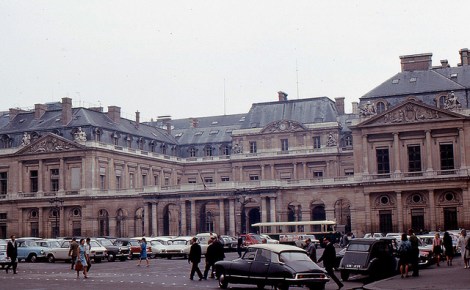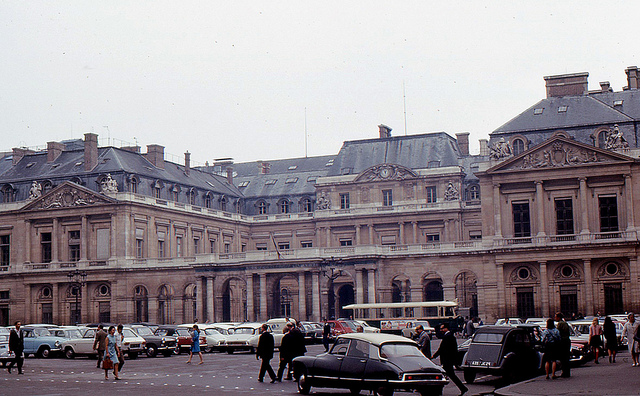If you know Paris, you know that it is primarily populated by men with pencil-thin mustaches who wear berets and carry around baguettes in paper bags. A lot of them wear shirts with thick horizontal stripes. These men don’t talk much, they mostly loiter around in the background speaking a language comprised mostly of sniffs and grumbles. (There are also women in Paris; they are uniformly stunning.)

roger4336This is exactly what Paris looks like today.
The protagonists of the city are the superspies, the well-coiffed American and British men who use Paris as a rendezvous point with clumsy, heavyset agents from Russia or Bulgaria. Invariably, these meetings end poorly, and the superspies — though heavily outnumbered — manage to effect an escape by driving vintage cars along the banks of the Seine. Depending on the day, the Bulgarians either end up in the river, emerging with a spluttering curse, a fish draped across their heads, or they vanish from the scene in some sort of horrific explosion.
But all of that is likely to change, ruining the Paris that we know so well. The mayor of the city is going to ban vintage cars.
From the Times:
[T]he ban would include many of the most recognizably French cars, including the Citroën 2CV, known as the Deux Chevaux; the Citroën DS, celebrated for its clean, distinctive design; the Renault 4L, a practical Everyman’s car of the 1960s and ’70s; and many classic Peugeots. …
The ban would apply to private and commercial vehicles that would be older than 17 years in 2014 and therefore do not comply with existing European standards for the tailpipe emissions that cause smog.
A spokesman for the city estimated that 367,000 cars would be affected. Also targeted are heavy trucks older than 18 years and motorcycles older than 10.
Oh la la, etc.!
The primary motivation for Mayor Delanoë’s decision (an umlaut! How European!) is a set of regulations issued by the E.U. aimed at cutting pollution from automobiles. But Delanoë has been on an anti-car jeremiad for some time. Over the past decade, one expert notes, car traffic in the city dropped by 25 percent.
The plan would extend the mayor’s efforts to make the city more pedestrian-friendly by reducing the number of cars. These efforts include introducing the Vélib’ bicycle rental program, establishing the Autolib’ electric-car rental system and cutting vehicle traffic along the banks of the Seine.
We share this story primarily because it will have a ripple effect. Not in the sense that other cities will soon ban their signature vehicles, but because the next time you travel to Paris for a bit of skulduggery, your adrenaline-drenched chase will be an exhausting one, taking place on a bike. Or, worse, you’ll be zipping along the Champs Élysées in a silent electric car, suddenly able to hear all of the various tut-tuts of those striped-shirt gentleman and the guttural curses of the fruit stand vendors who shake their fists as you unnecessarily plough through their wares.



